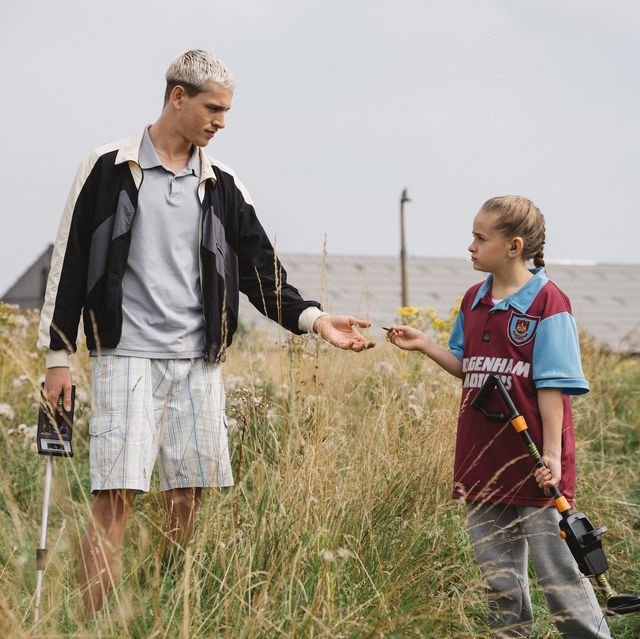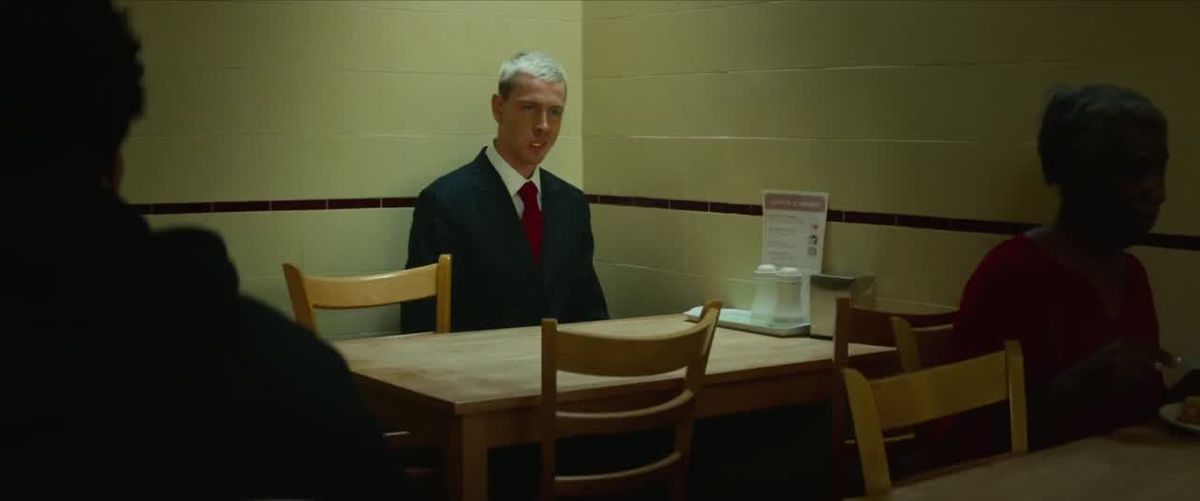Never work with children or animals, they say, but here comes Scrapper, a lilting drama about and led by a child (with a few pet spiders). In British director Charlotte Regan’s debut film, 12-year-old Georgie (played by newcomer Lola Campbell) lives alone in an East London following the death of her mother. We find her working through stages of grief with childlike determination and avoiding the influence of social workers and school via some craftily-deployed voice notes. Georgie spends the rest of her time with best mate Ali (Alin Uzun) stealing bicycles and selling them to a local fixer-upper. Everything is just peachy, thank you very much, until her long-lost father Jason (Harris Dickinson) comes along, all bleach blonde hair and questionable life choices. And then she has to deal with feelings: yuck.
The scenes between Dickinson and Campbell are far and away the best in this film, which is out in cinemas today. The pair imagine conversations between strangers at train platforms; they run away from the police; they go hunting for metal in the countryside. Elephant-in-the-room-sized questions – where has Jason been all her life? What possible good could he bring Georgie? – are the root of unhappier moments. Inevitably, and not without some justification, there will be comparisons to Charlotte Wells’s Aftersun, which depicted a father-daughter trip to Turkey. Watching Scrapper, it is impossible not to think of that film: the family set-up, the recognisable British touch stones, the wistful colour palette. The recreation of child’s point of view on some very serious issues. The comparison takes away from neither film: while Aftersun catches you in a riptide, Scrapper is an altogether easier watch. It’s made for a Sunday afternoon.
If Campbell is the heart of the film, Dickinson provides the soul. The 27-year-old actor has given memorable turns in Beach Rats and last year’s Triangle of Sadness, and he channels that same hardened vulnerability – with an undercurrent of humour – to great effect in Scrapper. Taking on the role of a young father, like Mescal before him, Dickinson conveys both the maturity involved in such a position but also the immaturity. While this particular role may not take him to the Oscars as it did with the Irish actor, it will bring him new fans. It certainly shows a more family friendly side to him than the male model he portrayed in Triangle of Sadness. One expects some viewers to swoon.
The film is, at times, a frustrating watch. It could have shed some of the more expected beats and plumbed greater emotional depths. It never really delves into Georgie’s grief, and instead uses it as a plot point as we move – with good humour and spirit –from A to B. Cutaways to variously useless adult influences, set up in a confessional sitcom format, are truly jarring. But none of those distractions take away from the central performance by Campbell. Disappointment is the hardest emotion: whether you’ve been let down by a friend, partner, loved one (or all three). Georgie has set herself up against all that. What the film gently suggests is that it’s okay to let your guard down, and that’s where Dickinson, sensitive and occasionally misguided, comes in with a paternal pat on the head.
‘Scrapper’ is in cinemas today
Henry Wong is a senior culture writer at Esquire, working across digital and print. He covers film, television, books, and art for the magazine, and also writes profiles.













